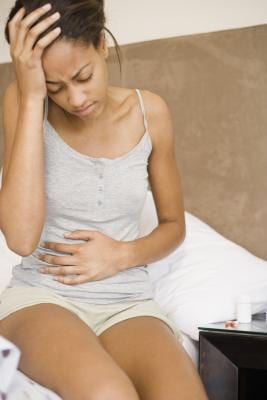You’re in your first trimester of pregnancy, and you wake up one morning, still half asleep. You walk into the kitchen and see the coffee that your partner already made and, without thinking, you pour yourself a cup. After a few minutes, you realize the mistake you made. You are awake now, but you don’t feel so good. You’ll remember next time to not drink coffee in the morning because it tends to bring on your morning sickness.
About Morning Sickness
About half of all pregnant women have morning sickness, which consists of nausea and vomiting. Twenty-five percent of women have only nausea with no vomiting, and the lucky rest, the other 25 percent, don’t have any morning sickness at all. Some women have morning sickness the entire time they are pregnant, although 75 percent of women only have it in the first trimester. Some women only have morning sickness in the morning, but most women actually can feel this way all day long.
Possible Causes
Morning sickness still baffles doctors, who don’t know the exact reason for the phenomenon. One explanation is that morning sickness happens because of all the changes taking place in your body. Doctors suspect that human chorionic gonadotropin, the pregnancy hormone, is the culprit, based on circumstantial evidence. Nausea peaks when hCG rises. Also, women who have higher levels of hCG, such as women who are carrying multiples, tend to have morning sickness more than the general pregnancy population. Estrogen is another suspect for the same reason as hCG. Estrogen rises in early pregnancy. Changes in blood sugar could be another reason for morning sickness.
Odors
Most pregnant women are ultra-sensitive to odors. If you smell something distasteful that you normally could tolerate, you might not be handle the aroma while pregnant. Your gag reflex can kick in, and you could vomit. Sometimes, stress, fatigue, traveling or certain foods can make morning sickness worse.
What to Eat
Morning sickness doesn’t hurt your baby in any way, unless you are losing weight. Even so, you’ll want to take measures to reduce the symptoms. Some women find that eating soda crackers first thing in the morning, before getting out of bed, helps and find it useful to keep a package of crackers on the nightstand. It’s also better to eat smaller meals every two hours, rather than eating three large meals a day. Good foods to eat are apples or celery with peanut butter, whole grains, peas, beans, legumes, nuts, white rice, toast, plain pasta and yogurt. Ginger can also help. Drink ginger tea, ginger soda, or eat ginger candy.
What to Avoid
Avoid foods high in fat, drinks with caffeine and alcoholic beverages. Avoid smoking and being around people who smoke. If you want to take medicine for your nausea, speak to your doctor first. Air your house to get rid of any unpleasant odors. Take your prenatal vitamins at night if you tend to be sick in the morning. If nothing you do helps, if you lose more than 2 lbs., vomit blood or vomit more than three times a day, call your doctor.





